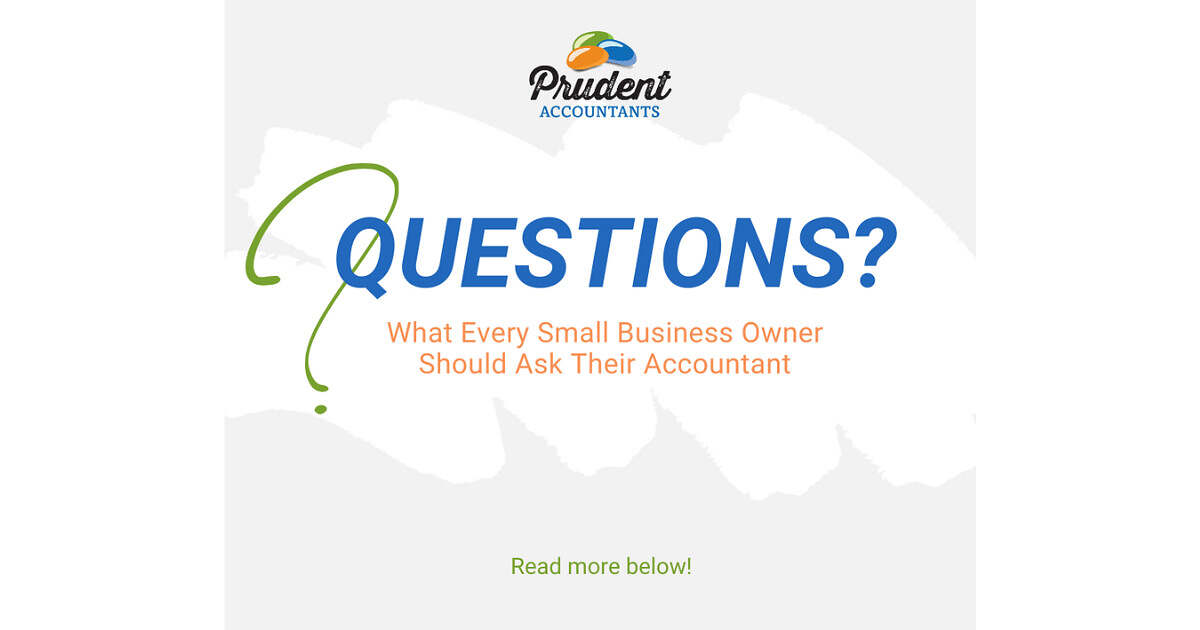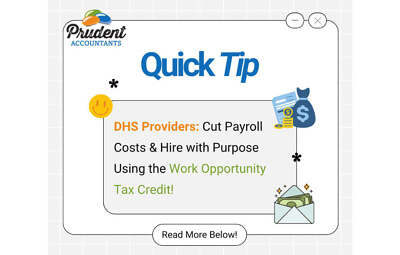Top 6 Essential Questions Small Business Owners Should Be Asking Their Accountants

Running a small business involves juggling numerous responsibilities, and managing finances is one of the most crucial. A well-structured financial strategy can be the difference between success and failure. However, many small business owners are unsure about the best practices for managing their finances. One of the most effective ways to gain clarity is by consulting with a professional accountant. Here are six essential questions that every small business owner should ask their accountant to optimize their financial strategy and ensure long-term success.
1. What Financial Reports Should I Be Reviewing Regularly?
Understanding your financial position requires regular review of key financial reports. These reports provide insights into your business’s performance and can help you make informed decisions. The three most crucial financial reports every business owner should regularly review are the income statement, balance sheet, and cash flow statement.
- Income Statement: Also known as the profit and loss statement, it shows your business’s revenues, expenses, and profits over a specific period. This report helps you understand whether your business is profitable.
- Balance Sheet: This provides a snapshot of your business’s financial position at a given moment. It lists your assets, liabilities, and shareholders’ equity, offering a clear view of what your business owns and owes.
- Cash Flow Statement: This report tracks the flow of cash in and out of your business, helping you understand how well your company generates cash to pay its debt obligations and fund operating expenses.
Regularly reviewing these reports helps in:
- Identifying trends in income and expenses.
- Ensuring your business is financially healthy.
- Making informed decisions about investments and expenses.
- Planning for future growth.
At Prudent Accountants, we provide comprehensive financial reporting services. Our experts ensure your financial records are accurate and up-to-date, giving you clear insights into your business’s performance. With our detailed reports, you can confidently make strategic decisions.
2. How Can I Improve My Cash Flow Management?
Cash flow is the lifeblood of any business. Without proper cash flow management, even profitable businesses can face financial difficulties. Effective cash flow management involves tracking how money moves in and out of your business. It’s essential to ensure that your business always has enough cash to cover its obligations.
Tips:
- Timely Invoicing: Ensure you invoice clients promptly and follow up on overdue invoices.
- Expense Tracking: Keep a close eye on your expenses and cut down unnecessary costs.
- Maintain Cash Reserves: Always have a buffer of cash reserves to handle unexpected expenses.
- Negotiate Payment Terms: Try to negotiate longer payment terms with your suppliers while encouraging your customers to pay early.
- Cash Flow Forecasting: Regularly forecast your cash flow to anticipate shortages and surpluses.
Prudent Accountants offers expert cash flow management services. We help you monitor your cash flow, project future cash needs, and provide strategies to optimize cash flow. With our support, you can ensure your business remains financially stable and prepared for any challenges.
3. What Tax Strategies Should I Be Using to Minimize My Liabilities?
Taxes can take a significant chunk out of your profits if not managed correctly. Effective tax planning can help minimize your tax liabilities and keep more money in your business. Tax planning involves analyzing your financial situation from a tax perspective to ensure you are maximizing your deductions and credits while remaining compliant with tax laws.
Strategies:
- Deductions: Make sure you’re taking advantage of all available deductions, such as home office expenses, business-related travel, and equipment purchases.
- Credits: Identify eligible tax credits that can reduce your tax liability. For example, research and development (R&D) credits can be substantial for businesses investing in innovation.
- Entity Structuring: Choose the right business structure (e.g., LLC, S-Corp) that offers the best tax advantages.
- Retirement Plans: Contributing to retirement plans not only helps save for the future but can also provide significant tax benefits.
- Deferring Income: Postponing income to the next tax year can sometimes help lower your tax bill, depending on your financial situation.
Our team at Prudent Accountants specializes in tax planning and preparation. We stay up-to-date with the latest tax laws and regulations to develop strategies that minimize your tax liabilities. Let us help you keep more of your hard-earned money and ensure compliance with all tax requirements.
4. How Can I Prepare for Potential Financial Risks and Uncertainties?
Every business faces financial risks and uncertainties. Preparing for these can mean the difference between surviving a downturn and going out of business. Risk management involves identifying potential risks and developing strategies to mitigate them. This includes both financial risks, such as cash flow issues or unexpected expenses, and operational risks, like supply chain disruptions.
Advice:
- Build a Financial Buffer: Maintain an emergency fund to cover unexpected expenses.
- Insurance: Ensure you have adequate insurance coverage to protect against unforeseen events.
- Diversify Revenue Streams: Don’t rely on a single source of income. Diversifying can help mitigate risk if one revenue stream dries up.
- Regular Financial Reviews: Conduct regular reviews of your financial statements and risk management strategies.
- Stay Informed: Keep up with industry trends and economic forecasts that might affect your business.
At Prudent Accountants, our advisory services include comprehensive risk assessments and strategic financial planning. We help you identify potential risks and develop robust strategies to mitigate them. Trust us to help you navigate uncertainties and secure your business’s future.
5. What Are the Key Metrics I Should Track to Measure My Business Performance?
Tracking the right metrics is crucial for understanding your business’s performance and making informed decisions. Key performance indicators (KPIs) are quantifiable measures that gauge the effectiveness of various aspects of your business.
Key Metrics:
- Profitability Ratios: These include gross profit margin, net profit margin, and return on assets (ROA). They help you understand how well your business is generating profit relative to its expenses.
- Liquidity Ratios: Current ratio and quick ratio measure your business’s ability to meet short-term obligations.
- Cash Flow Metrics: Operating cash flow and free cash flow provide insights into the cash generated from your business operations.
- Customer Acquisition Cost (CAC): The total cost of acquiring a new customer.
- Customer Lifetime Value (CLTV): The total revenue expected from a customer over their entire relationship with your business.
Monitoring these metrics helps you:
- Identify strengths and weaknesses.
- Make data-driven decisions.
- Set realistic financial goals.
- Track progress towards your business objectives.
Prudent Accountants can help you set up and monitor customized KPIs tailored to your business. Our experts provide the tools and insights you need to track your performance effectively and make strategic decisions that drive growth.
6. Is My Current Business Structure Optimal for Tax Purposes?
The structure of your business significantly impacts your tax obligations and liability exposure. It’s essential to ensure your business is set up in the most tax-efficient way. Different business structures, such as sole proprietorships, partnerships, LLCs, and corporations, have varying tax implications and legal protections.
- LLC (Limited Liability Company): Provides liability protection while allowing profits to be taxed on the owner’s personal tax return.
- S-Corp: Allows profits (and some losses) to be passed directly to the owners’ personal income without being subject to corporate tax rates.
- C-Corp: Subject to corporate income tax, but offers unlimited growth potential through the sale of stock.
- Partnerships: Involve two or more people who share ownership, profits, and liabilities.
Pros and Cons:
- LLC: Offers flexibility and protection, but may involve higher state fees.
- S-Corp: Provides tax benefits but requires more paperwork and formalities.
- C-Corp: Best for businesses planning to go public or seek significant investment, but faces double taxation (corporate and personal).
- Partnerships: Simple to establish and offer pass-through taxation but involve shared liability.
Prudent Accountants can assist with business formation and structuring. Our team evaluates your current setup and suggests the most advantageous structure to optimize your tax position and protect your assets. Let us help you determine the best structure for your specific needs.
Final Thoughts:
Effective financial management is critical to the success of any small business. By asking these six essential questions, you can gain valuable insights and take proactive steps to enhance your business’s financial health. Understanding and regularly reviewing financial reports, improving cash flow management, employing effective tax strategies, preparing for financial risks, tracking key metrics, and ensuring an optimal business structure are vital for small business success.
Prudent Accountants offers a comprehensive range of services tailored to meet the unique needs of small businesses. From bookkeeping and financial reporting to tax planning and advisory services, we are here to support your business every step of the way.
Ready to take your financial management to the next level? Contact Prudent Accountants today for a consultation. Our team of experienced professionals is dedicated to helping you achieve your business goals and secure a prosperous future.








